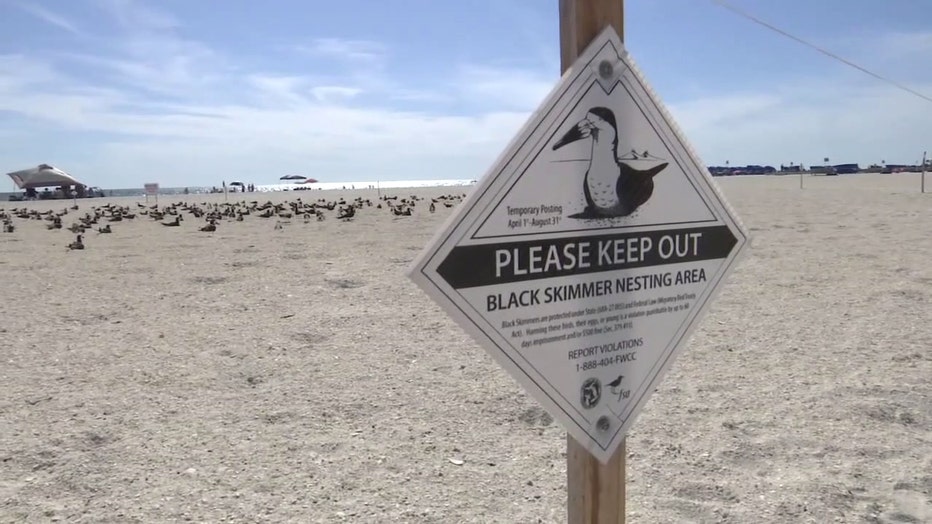Seabirds nesting in the Bay Area as tourists visit for spring break
TAMPA, Fla. - Thousands of tourists are packing Tampa Bay area beaches this month for spring break, but wildlife experts are pleading to watch out for seabirds. It’s their nesting season and baby bird eggs are just beginning to line the beaches.
Unfortunately, some of our beach birds are struggling to survive in Florida. Birds like skimmers, plovers and terns are laying their eggs in the Florida sand, but in recent years, many of the babies have had a tough time surviving.
"Every year we end up getting calls about injured birds. Or sometimes it'll even be deceased chicks," Fairl Thomas with Birds in Helping Hands said. "Something as simple as encroaching on the birds' nesting area could cause the parents to fly off and make it an easier opportunity for a predator."
READ: Scientists photograph ‘lost bird,’ not seen for decades, during expedition in Africa
Some of the seabird species are threatened by population decline in recent years, from human disturbances, sea level rise and loss of habitat as the coast develops. One expert said spring break can be a trying time.

"We're continually breaking tourism records in the Sunshine State," said Erika Zambello with Audubon Florida. "At the same time, thousands of people are moving to Florida each and every year who are not very familiar with our beaches and our beach nesting sea and shorebirds. And so it is definitely a constant effort to educate locals and visitors alike about how to protect the sea and shorebirds."
Organizations like Birds in Helping Hands, and Audubon Florida, are crucial in helping protect the nests in the Tampa Bay area during the season.
"There was a nesting pair of oystercatchers. I believe it was at Fort DeSoto last year that volunteers were working really hard to protect, because it was the first time that they had nested on Fort DeSoto beach in years. And they successfully raised a chick," said Thomas.
VIDEO: Sharks feast on whale that died after stranding itself off the coast of Venice
Still, wildlife experts are asking beach goers to join the flock and become beach stewards to protect the eggs this season. Nests can actually be hard to see, often discrete little scratches in the sand right on the shoreline or in the dunes, so experts warn to watch where you step and follow their tips for distance.
"Protecting these birds is actually really easy. You need to give them the space that they need to survive, thrive, and successfully raise their families. That means giving them at least 100 feet of space," said Zambello.
WATCH FOX 13 NEWS:
SIGN UP: Click here to sign up for the FOX 13 daily newsletter

